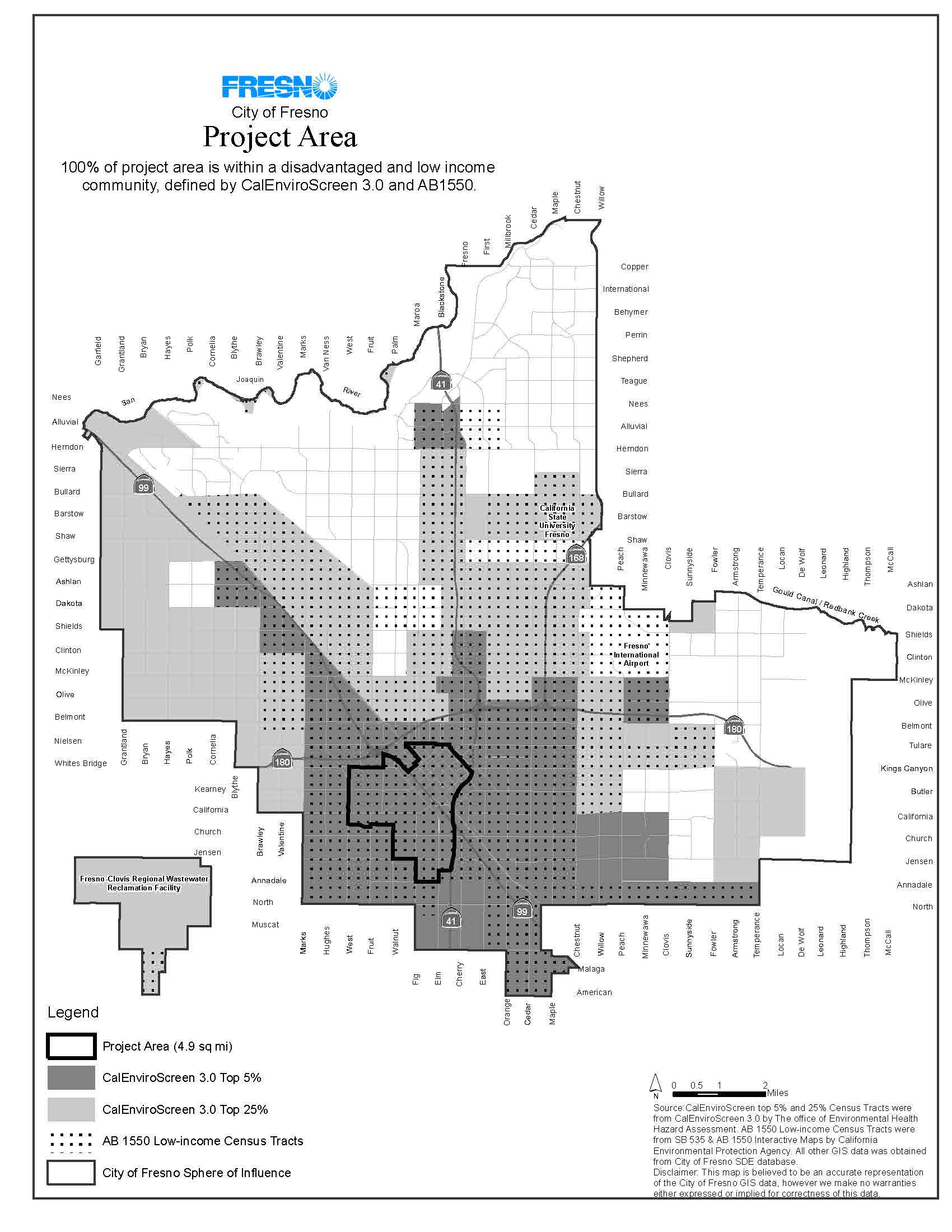Note: GJEL Accident Attorneys regularly sponsors coverage on Streetsblog San Francisco and Streetsblog California. Unless noted in the story, GJEL Accident Attorneys is not consulted for the content or editorial direction of the sponsored content.
This week the Strategic Growth Council chose the first cities to receive grants from the Transformative Climate Communities (TCC) program, which is funded by the state's cap-and-trade system. The purpose of the TCC is to encourage “the development and implementation of neighborhood-level transformative climate community plans” that reduce greenhouse gas emissions. Winning projects are also supposed to provide local economic, environmental, and health benefits to disadvantaged communities, and to show that local residents have been a part of creating the plans.
“This is an innovative program that is trying to create a model of public investment and planning work,” said Ena Lupine of the Strategic Growth Council. By requiring that the projects be community-led in both planning and implementation, she said, the TCC is aiming for “a process that builds trust in the community and makes sure local voices are being heard.”
It was already a given that the city of Fresno would receive the largest grant, $70 million, half of the total for the first round. Fresno was chosen at the outset because it suffers from some of the worst air in the state and from very high poverty rates; in addition, the city was already working to make changes, shifting its zoning to encourage infill and planning for growth around high speed rail.
Last fall, the Strategic Growth Council had also decided that the rest of the available funding would be divided between two projects, one in Los Angeles and one somewhere else in the state. This week the council adopted staff recommendations to fund the Watts Rising Collective and Ontario Connect: People, Places, and Prosperity. Each of these cities will receive $35 million from the cap-and-trade program, although they will also provide matching funds from other sources, so the total investment on all three projects will be more than $400 million. The $140 million from cap-and-trade will get the process started.
In Fresno, the final project list was selected through a participatory process of which local leaders and city staff are proud. “The community meetings raised our outreach and our public participation to an unprecedented level,” said Mark Standriff of the city of Fresno. “We had hundreds of people showing up to meetings; we saw members of the community really step up to participate.”
He credits partner organizations with helping create that robust participation, including the Central Valley Community foundation, the Fresno Economic Opportunities Commission, city council member Oliver Bains, and local faith-based leaders. “Those connections to the community helped us reach out,” he said, and people knew they weren't in for just another dry, boring city meeting.
“The good news is, we're getting $70 million,” he said, which will help improve the community. “The bad news is, the reason we're getting $70 million is because we have incredibly high poverty rates and bad air quality.”
Getting the funding doesn't mean all of the city's problems are suddenly solved, he added. But now the city has built some community trust and a robust communication process. “We've got a successful template, so we can continue to step up for funding,” he said.
Transform Fresno will include:
- An affordable housing project near the future high-speed rail station
- Low-income weatherization projects, including residential solar installations and energy efficiency improvements in single-family homes
- Urban greening projects, including bicycle pathways and pedestrian improvements
- Urban forestry projects, including a community orchard to educate residents about organic management and carbon capture
- Electric vehicle, vanpool, and bike-share programs
- Food waste prevention and rescue programs, with a new community grocery store and distribution center
- Redevelopment of Mariposa Plaza near the future high speed rail station, with an enhanced space for community speaking and engagement activities
- The development of a new Community College campus in Southwest Fresno
The city is also expected to continue developing robust displacement avoidance and workforce development plans for these projects.
The second project awarded was $35 million to the Watts Rising Collaborative, a collection of sixteen different co-applicants, led by the Housing Authority of Los Angeles, for eighteen interconnected projects (with five additional projects to be funded by other means). They include new affordable housing within the ongoing Jordan Downs redevelopment, energy efficiency retrofits and solar panel installations on homes, the purchase of electric buses, the creation of a car-share and shuttle program for local residents, and active transportation projects. The plan also includes an expansion of a “Safe Passage Program” that sends volunteers to accompany youth walking to and from school.
The third project group awarded funding will also receive $35 million. Ontario Connects: People, Places, Prosperity includes bicycle and pedestrian projects, public transportation improvements, new affordable housing, energy efficiency upgrades, food security projects, and expansion of green space. It came out of six years of community engagement work conducted by the city and its partners in the Healthy Ontario Initiative. The projects, in addition to reducing greenhouse gas emissions and improving health outcomes for local residents, are aimed at improving access to job training and workforce development.
Strategic Growth Council staff raised concerns about the project's proposed Virginia/Holt housing development, which is planned close to a Union Pacific freight corridor. The City of Ontario is in negotiations with Union Pacific to shift freight to another rail line so they can eventually use the right-of-way for commuter rail, and plans to create a business park buffer between the rail line and the new housing.
Several other projects were not awarded funding, although they scored well in the application process. The Strategic Growth Council purposely limited the number of awards so they could give larger amounts to chosen communities, and make a bigger difference in those areas. A larger award also encourages collaboration among community members to come up with the projects that lower greenhouse gas emissions in a way that will best suit their needs and provide other economic and health benefits.
There will be future rounds of funding for the TCC, but when that will happen and what form it will take has not yet been decided. Eligibility requirements may be adjusted to include a larger range of disadvantaged communities; methods of calculating greenhouse gas emissions may be revised as more is learned about how to measure the interconnected effects of multiple, coordinated projects.






